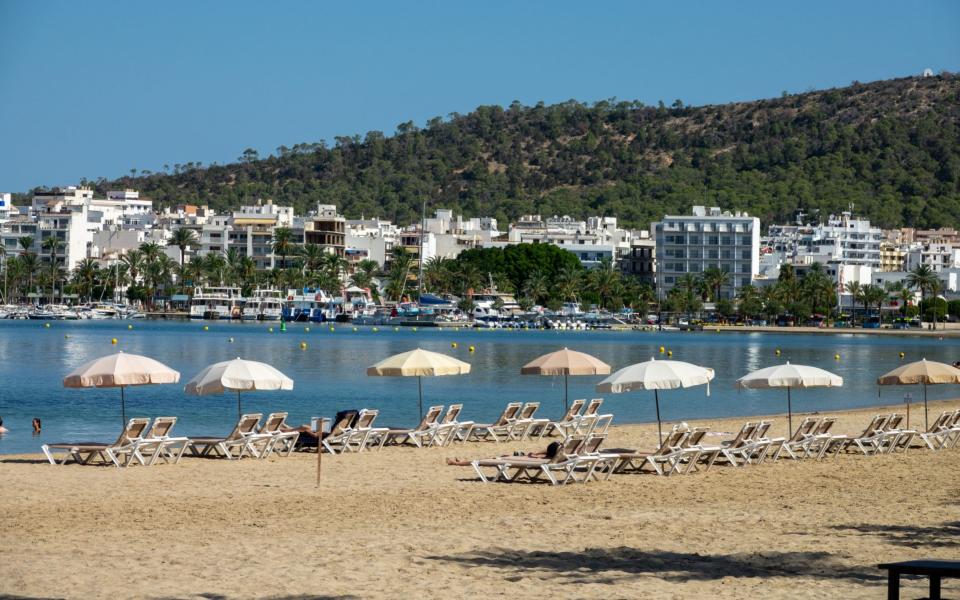Quarantine to be cut to 10 days for people arriving from Spain

Quarantine for people arriving from Spain and other countries with high levels of Covid-19 will be cut to 10 days under plans being finalised by ministers, The Telegraph has learnt.
The Government hopes to announce this week a new policy of testing arrivals from high-risk countries eight days after they land. If they test negative they will be allowed to come out of self-isolation two days later, reducing the mandatory quarantine period by four days.
The move will cut almost an entire working week off the self-isolation requirement, and ministers hope it will help salvage the summer holiday season for some of those already booked on flights abroad.

It has emerged that the Cabinet’s coronavirus committee decided to reimpose quarantine on all arrivals from Spain after being told 10 Britons had this month tested positive for coronavirus after returning from the country.
Although positive tests are still running at more than 700 per day in the UK, the ministers were told that the imported cases were “statistically significant” and decided they could not risk millions of people going to Spain over the coming weeks.
The Government is now considering telling everyone who has come into the UK from Spain since July 23, including returning holidaymakers, to take a coronavirus test.
It came as ministers ignored pleas from Spain and the travel industry to exempt Spain’s islands, including the Canaries and the Balearics, from the quarantine measures because of their lower rates of infection. Instead the Foreign Office changed its travel advice on Monday night to say that “all but essential” travel to the islands should be avoided.
Previously they had been treated differently from mainland Spain.
The move was expected to lead to the cancellation of flights and force large numbers of people to postpone or cancel their holidays.
Following the announcement, Jet2 suspended Spanish flights and told customers not to go to the airport on Tuesday.
Michael Gove, the Chancellor of the Duchy of Lancaster, has told colleagues he had booked a holiday to Ibiza at the end of this week but will now have to cancel.
Meanwhile Grant Shapps, the Transport Secretary, who arrived in Spain on holiday hours before he helped take the decision to reimpose quarantine, will cut short his family break and return to the UK on Tuesday. Matt Hancock, the Health Secretary, believes quarantine can be shortened using mass testing because of growing confidence in the tests used in the UK.

Coronavirus takes five to seven days to incubate, meaning those who have the disease can be asymptomatic during that period. If people test negative eight days after they have landed, the chances of them having the virus are tiny, ministers now believe.
Under Mr Hancock’s plan, they will be told to remain in isolation for another two days as a fail-safe, as well as allowing time for their test results to come back, and if no symptoms arise they will be able to end quarantine. It means that someone returning from holiday on a Saturday would be able to return to work on Wednesday week, rather than having to lose a full two working weeks.
The move is likely to be seen as an attempt to defuse the controversy over the Government’s decision to reimpose the Spanish quarantine, throwing into chaos the holidays of up to 1.8 million either in the country or about to go.
Employment lawyers have warned that tourists returning from Spain might be forced to take unpaid leave as a result of having to quarantine. They are not eligible for sick pay.
Danielle Parsons, of the law firm Slater and Gordon, said: “Those returning from Spain who have suddenly discovered they have to quarantine are in a very weak legal position as their bosses don’t have to give them time off if they are unable to work from home.”
An estimated 600,000 British holidaymakers are already in Spain and face quarantine on their return. It is unclear how quickly the new quarantine regime could be introduced or whether any of them will benefit.
Baroness Harding, the chairman of the UK’s test and trace programme, said that “over time … I would like to believe that we’ll be able to shorten” the quarantine period.
A government spokesman said the 10-day quarantine period was under discussion but that no final decision had yet been made. The decision to reimpose quarantine on all UK arrivals from Spain, effective from 11pm last Saturday, was taken after the Cabinet’s coronavirus operations committee, chaired by Michael Gove, was told about Britons importing the virus from Spain.
Prof Chris Whitty, the Chief Medical Officer, warned the six ministers on the committee that unless quarantine was reimposed the numbers could rise significantly and “made it clear that doing nothing was not an option”, according to one Whitehall source.
It is believed to be the first time that tourists returning from a country deemed “safe” by the Government have brought the virus back into the country. Despite pleas from the Spanish authorities and the travel industry to keep open “air bridges” with Spanish islands, the Foreign Office changed its travel advice late on Monday to add the islands to the list of countries to which Britons are advised not to fly.
A Foreign Office spokesman said: “We have considered the overall situation … including the impact of the requirement to self-isolate on return to the UK, and concluded that we should advise British nationals against all non-essential travel to the whole of Spain.”
Pedro Sanchez, Spain’s prime minister, said the British Government got it wrong with its quarantine order and advice against travelling to any part of Spain. He said the two nations were “friends” and talks would continue between them as part of efforts to persuade the UK to change its mind.

 Yahoo News
Yahoo News 
